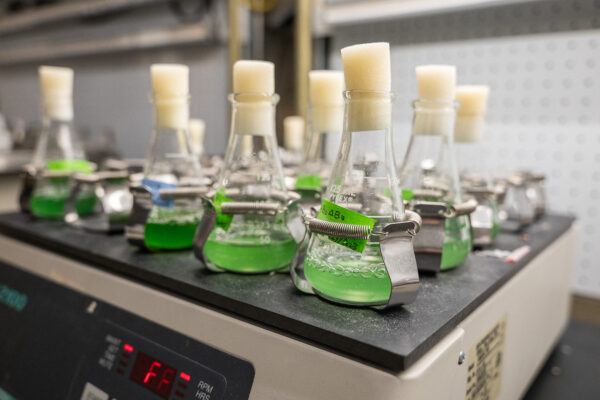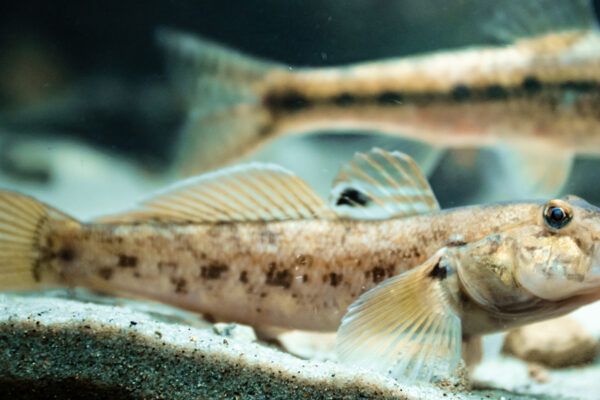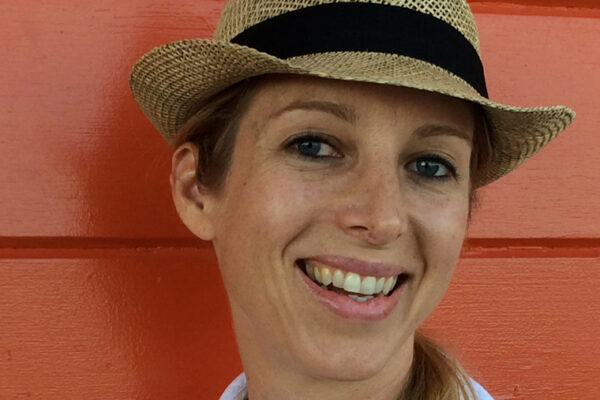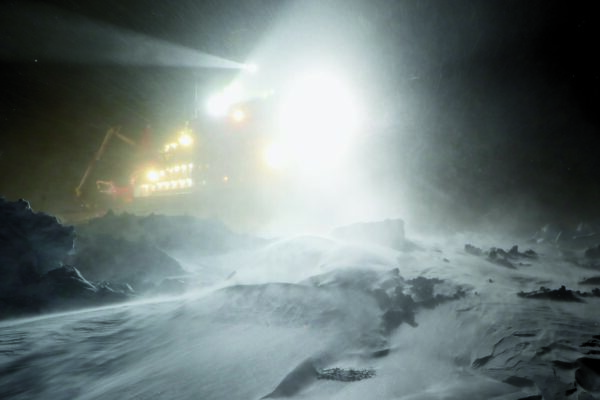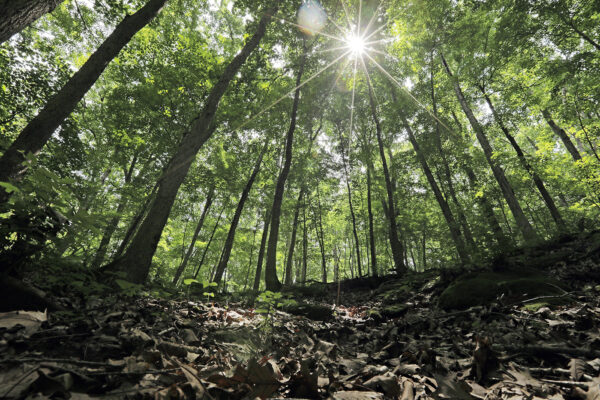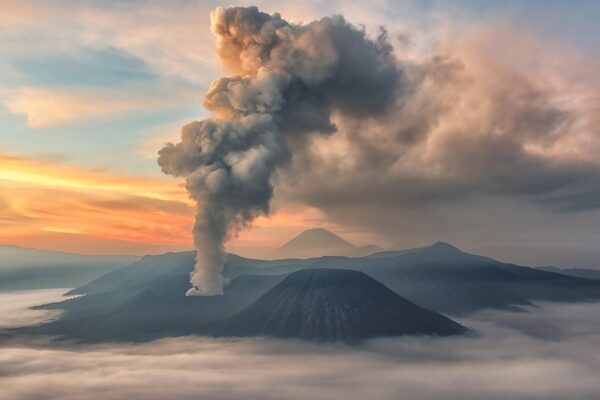Not-so-spooky sounds: Audio recordings help ID urban bats
Washington University scientists have documented 10 different bat species in our area, including several threatened and endangered bats.
Grant funds green fertilizer research at WashU
Biologist Himadri Pakrasi in Arts & Sciences, who studies how cyanobacteria contribute to the chemistry of life, will lead a $5 million effort to develop technology to convert atmospheric nitrogen into fertilizer. Yinjie Tang and Yixin Chen at the McKelvey School of Engineering are co-investigators on the project.
Using environmental DNA for fish monitoring
Kara Andres, a Living Earth Collaborative postdoctoral researcher, used eDNA to follow invisible trails of genetic information from fish. While her original study probed the Great Lakes, her recent work is focused on microbial communities in local waterways.
$3M grant funds training to harness power of AI for social, environmental challenges
A National Science Foundation research traineeship led by William Yeoh at the McKelvey School of Engineering will prepare investigators at the convergence of computational, environmental and social sciences.
Climate reporter Baker to discuss heat safety standards
The Weidenbaum Center on the Economy, Government and Public Policy at Washington University in St. Louis will host Aryn Baker, Time magazine’s senior international climate and environment correspondent, for a public forum and reception Sept. 26.
World can now breathe easier
Researchers working with Randall Martin at the McKelvey School of Engineering quantified changes in global air pollution from fine particulate matter. They found that global PM2.5 exposure decreased steadily from 2011 to 2019, largely driven by rigorous air quality management in China and slower growth in other regions.
Blowing snow contributes to Arctic warming
Atmospheric scientists led by Jian Wang, at the McKelvey School of Engineering, analyzed data from an Arctic expedition and found that blowing snow is a source of sea salt aerosols, impacting Arctic climate models.
New Center for the Environment begins work
Washington University’s new Center for the Environment begins its work, another step forward in the “Here and Next” strategic plan.
What happens in the tropics affects the globe
Volcanic eruptions can cause the Pacific Walker Circulation to temporarily weaken, inducing El Niño-like conditions. Human activity is affecting this system, too.
Fanning the flames
Research from Rajan Chakrabarty and Rohan Mishra at the McKelvey School of Engineering reveals an unexpected impact of wildfires on climate change.
Older Stories

